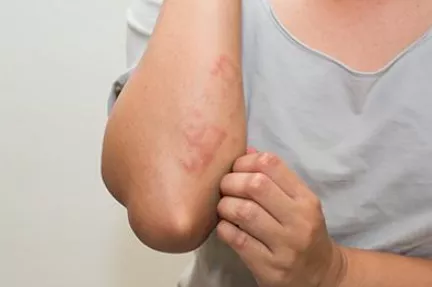Ringworm is a common fungal infection that can affect various parts of your body. The infection is contagious, often spreading through direct contact or contaminated surfaces, including clothes. One question many people ask is whether Lysol can kill ringworm on clothes. This article will explore the effectiveness of Lysol in eliminating ringworm and other related concerns.
Understanding Ringworm and Its Contagious Nature
Ringworm is a fungal infection caused by dermatophytes. These fungi thrive on the skin, hair, and nails. The infection often appears as red, scaly patches with a ring-like shape, which is where the name “ringworm” comes from. The infection spreads easily, particularly in shared spaces like gyms, locker rooms, and even on clothing. While ringworm can be treated with antifungal medications, preventing its spread is just as important.
How Lysol Works as a Disinfectant
Lysol is a well-known disinfectant used in households to kill bacteria, viruses, and fungi. It contains chemicals that can destroy the cell walls of microorganisms, which leads to their death. The main active ingredient in many Lysol products is benzalkonium chloride, a disinfectant that is effective against a wide range of pathogens. While Lysol is often marketed for killing germs and bacteria, it is also effective against certain fungi, including those that cause ringworm.
Can Lysol Kill Ringworm on Clothes?
Lysol can be effective in killing ringworm spores on clothes, but there are a few factors to consider. Ringworm spores can survive on fabric for a long time, and regular washing may not always be enough to completely eliminate the infection. Lysol’s disinfecting properties can help kill these spores when applied properly. However, it is important to note that Lysol should not be used as a sole treatment for ringworm. It can complement the cleaning process but should not replace medical antifungal treatments.
How to Use Lysol to Disinfect Clothes from Ringworm
To properly disinfect your clothes with Lysol and kill any potential ringworm spores, follow these steps:
- First, wash your clothes with hot water and detergent to remove any dirt and debris.
- After washing, add Lysol Disinfectant Spray to the load. You can spray it directly onto the clothes or use it in the laundry basket.
- For extra protection, let the clothes sit in the Lysol solution for a few minutes before drying.
- Make sure to dry your clothes completely on high heat, as heat can help kill remaining fungal spores.
Can You Rely on Lysol Alone for Ringworm Prevention?
While Lysol can kill ringworm spores on clothes, it is not a guarantee that it will completely prevent reinfection. Proper hygiene is essential in preventing the spread of ringworm. This includes washing your clothes regularly, avoiding sharing personal items like towels, and treating the infected skin with antifungal creams or medications prescribed by a doctor. Lysol can help minimize the risk of reinfection, but it should be part of a broader prevention strategy.
Additional Tips for Preventing Ringworm on Clothes
Aside from using Lysol to disinfect clothes, here are some additional steps you can take to prevent the spread of ringworm:
- Wash all personal items that may have come into contact with the infection, such as towels, bed linens, and socks.
- Avoid wearing tight clothing that may trap sweat and moisture, as fungi thrive in warm, damp environments.
- Consider using antifungal sprays specifically designed for fabrics if you’re concerned about ringworm contamination.
- Consult a doctor for effective antifungal treatments to ensure complete recovery and reduce the risk of reinfection.
Conclusion: Lysol as Part of the Ringworm Prevention Process
In summary, Lysol can be an effective tool in killing ringworm spores on clothes when used correctly. However, it should not be relied upon as the sole method of treating or preventing ringworm. Proper cleaning, along with antifungal treatments for the skin and other prevention measures, is essential in stopping the spread of this fungal infection. Always remember that Lysol works best as a supplement to other preventive measures, not as a standalone solution.
Related topics






















